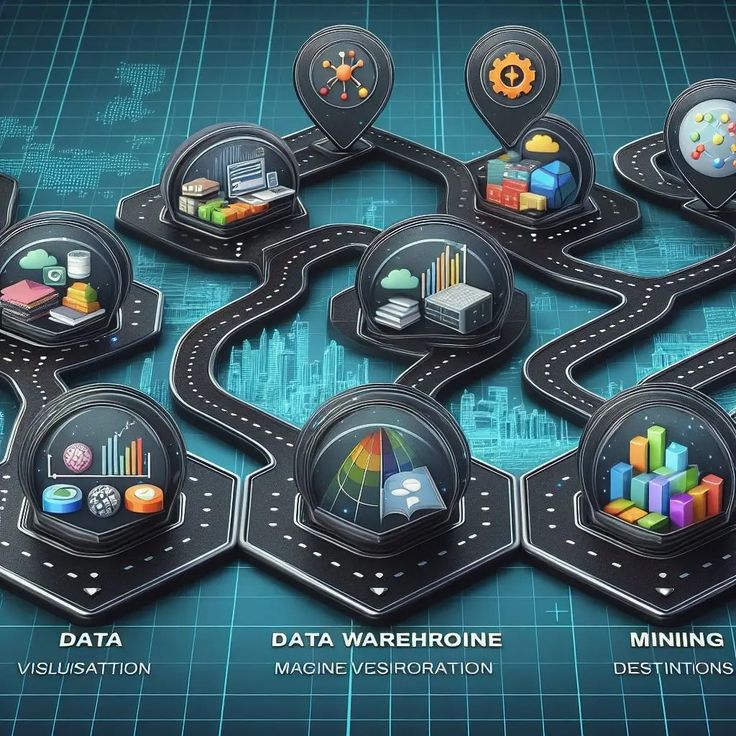
In today’s rapidly evolving business landscape, the ability to make informed decisions can significantly impact an organization’s success. Customer Relationship Management (CRM) and Business Intelligence (BI) are two pivotal tools that enable businesses to harness the power of data, driving strategic decision-making and fostering growth. This article delves into how CRM and BI work in tandem to enhance business processes and outcomes.
Understanding CRM
Customer Relationship Management (CRM) systems are designed to manage a company’s interactions with current and potential customers. By organizing and automating sales, marketing, customer service, and support, CRM systems aim to improve customer relationships, retain customers, and drive sales growth.
Key features of CRM systems include:
- Contact Management: Storing and organizing customer information.
- Sales Management: Tracking sales processes, from lead generation to closing deals.
- Marketing Automation: Automating marketing tasks and campaigns.
- Customer Service: Managing customer inquiries and support tickets.
- Analytics: Providing insights into customer behavior and business performance.
The Role of Business Intelligence
Business Intelligence (BI) refers to technologies, applications, and practices for the collection, integration, analysis, and presentation of business information. The primary goal of BI is to support better business decision-making through data-driven insights.
Key components of BI include:
- Data Warehousing: Centralizing and consolidating data from different sources.
- Data Mining: Extracting patterns and knowledge from large datasets.
- Reporting: Creating and distributing reports on business performance.
- Dashboards: Visualizing key performance indicators (KPIs) and metrics.
- Predictive Analytics: Using historical data to predict future trends.
Synergy Between CRM and BI
The integration of CRM and BI systems creates a powerful synergy that can drive informed decision-making. Here’s how they complement each other:
Enhanced Customer Insights
By integrating BI with CRM, businesses can gain deeper insights into customer behavior and preferences. BI tools can analyze CRM data to identify trends, patterns, and correlations that might not be immediately apparent. For example, a BI system can analyze customer purchasing history to predict future buying behaviors, enabling personalized marketing strategies.
Improved Sales and Marketing Strategies
BI enhances the functionality of CRM by providing sales and marketing teams with actionable insights. For instance, sales teams can use BI analytics to identify the most profitable customer segments and tailor their approaches accordingly. Similarly, marketing teams can leverage BI to measure the effectiveness of campaigns and optimize their strategies for better ROI.
Data-Driven Decision-Making
The combination of CRM and BI facilitates data-driven decision-making across the organization. Executives and managers can access real-time dashboards and reports that provide a comprehensive view of business performance. This empowers them to make informed decisions quickly, based on accurate and up-to-date information.
Enhanced Customer Service
Integrating CRM and BI can also improve customer service. BI tools can analyze customer support data to identify common issues and trends, enabling businesses to address problems proactively. Additionally, by understanding customer pain points and preferences, companies can provide more personalized and effective support.
Streamlined Operations
The synergy between CRM and BI can streamline business operations by automating data collection and analysis. This reduces the time and effort required to gather insights, allowing teams to focus on strategic tasks. Furthermore, integrated systems can eliminate data silos, ensuring that all departments have access to consistent and accurate information.
Conclusion
In an era where data is a critical asset, the integration of Customer Relationship Management (CRM) and Business Intelligence (BI) is a game-changer for businesses. By leveraging the strengths of both systems, organizations can gain a comprehensive understanding of their customers, optimize their operations, and drive strategic, data-informed decision-making. As technology continues to evolve, the collaboration between CRM and BI will undoubtedly play a pivotal role in shaping the future of business success.